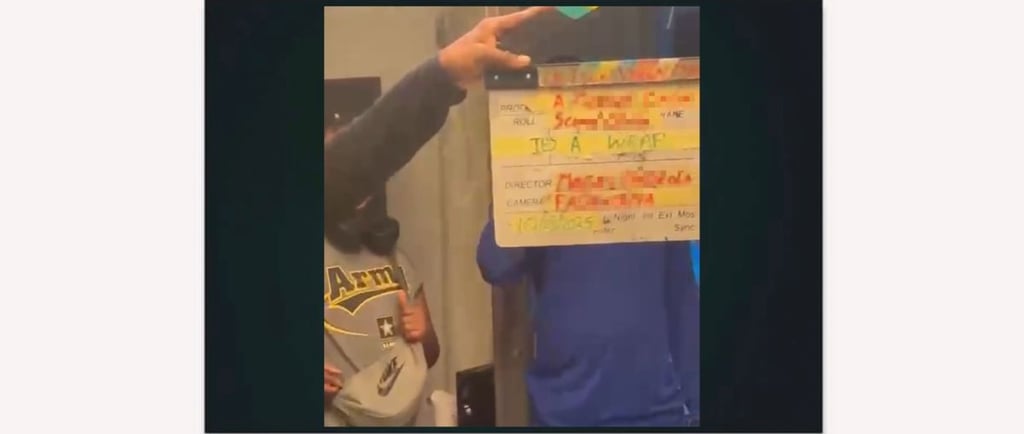From Watching Movies to Handling Full Legal Film Projects 🎬⚖️
Blog post description.
Optimist IBK
3/12/20252 min read


When I started my journey as an Entertainment Lawyer, I knew my focus wouldn’t be limited to just music law. My passion for film law and the movie industry was always strong. Entertainment is more than just music—it’s a vast, creative ecosystem that demands both legal expertise and a deep understanding of business dynamics.
Through extensive research and hands-on experience, I built a strong foundation in film law. Last year, I had the incredible opportunity to handle a full legal film project, starting from the negotiation stage to investment deals, pre-production, production, and post-production. In the midst of this, I was privileged to gain close mentorship from Amanda Uzoagba, Esq. , a brilliant entertainment lawyer specializing in Film & Music Law. And guess what? I became a full Legal Consultant at her firm Goldwhisk Consult !
After working on this six-month-long film project, along with several other entertainment law projects, I’ve come to realize some key differences between Music Law and Film Law:
🎬 Movie Law vs. 🎵 Music Law: Key Differences
1. 💰 Investment & Revenue Models:
Film: The movie business is heavily investor-driven, with financing coming from executive producers, investors, film studios, or grants.
Music: The music industry generates investments through record deals, or licensing agreements.
2. 📊 Revenue Streams & Monetization:
Film: Revenue is often structured around back-end deals, where investors and key stakeholders earn from box office sales, streaming deals, and licensing.
Music: Artists, songwriters, and producers typically earn royalties based on streaming, publishing rights, and licensing.
3. 📺 Distribution & Streaming:
Film: Streaming platforms like Netflix, Prime Video, and Disney+ often buy film projects upfront for a specific licensing period.
Music: Platforms like Spotify and Apple Music operate on a pay-per-stream model, meaning the more streams a song gets, the higher the revenue.
4. 🎬 Producer vs. Producer:
Film: A film producer is responsible for overseeing the entire movie project, from funding to production and distribution.
Music: A music producer creates instrumentals/beats and manages the recording process for artists.
5. 📜 Legal Agreements & Contracts:
Film: A single film project can require over 30 agreements, covering actors, directors, crew members, script rights, licensing, distribution, and financing.
Music: The music industry may operate with just a few key agreements, such as recording contracts, split sheets, and licensing deals.
6. 🔑 Ownership & Rights:
Film: The financier does not always own the movie—ownership is often retained by producers, studios, or investors.
Music: The financier (label/investor) often owns the master recording, meaning artists need buyout clauses or reversion rights to regain control.
7. 🚀 Market Access & Distribution:
Film: Movies must be pitched and approved by streaming platforms, distributors, or cinema networks before being acquired.
Music: Songs can be uploaded directly to streaming platforms without prior approval.
8. 📄 Regulations & Permits:
Film: Requires permits for filming locations, production, and distribution rights.
Music: Generally does not require permits unless it involves sampling, licensing, or live performances.
💡 Final Thoughts
From pre-production to post-production, the film industry presents a unique legal landscape distinct from music. While both industries share similarities in rights management, revenue structures, and contractual negotiations, their deal structures, financing models, and distribution processes set them apart.
Navigating both Film Law and Music Law requires adaptability, industry insight, and a solid legal strategy. My journey from handling music agreements to full-scale film projects has reinforced the importance of understanding the business side of entertainment, and I’m excited to keep expanding my expertise in both fields.


